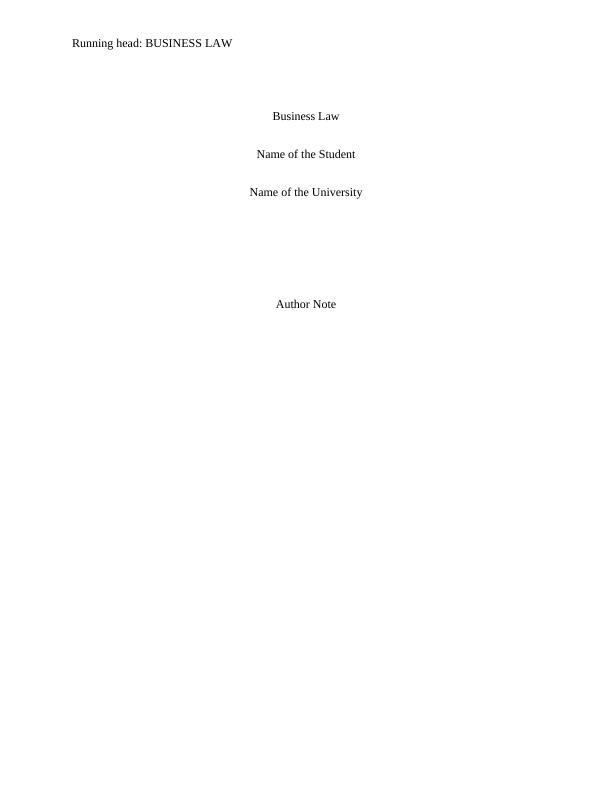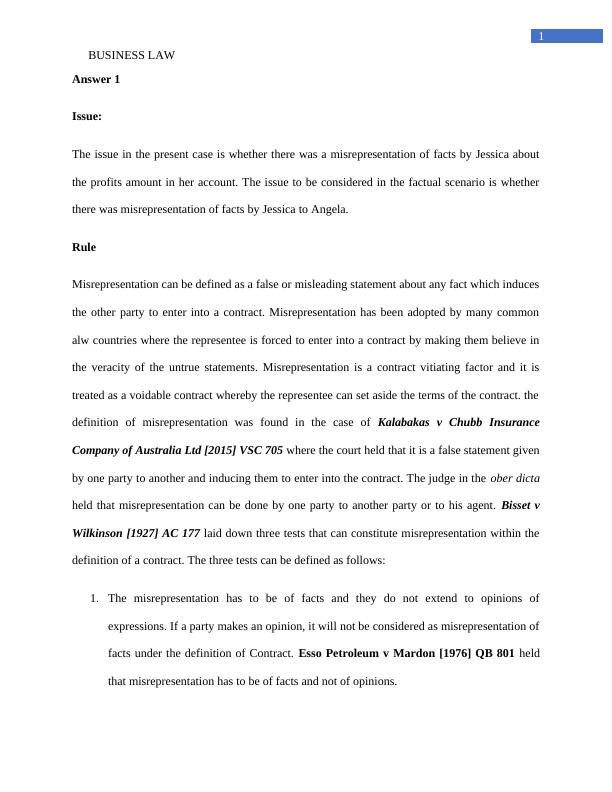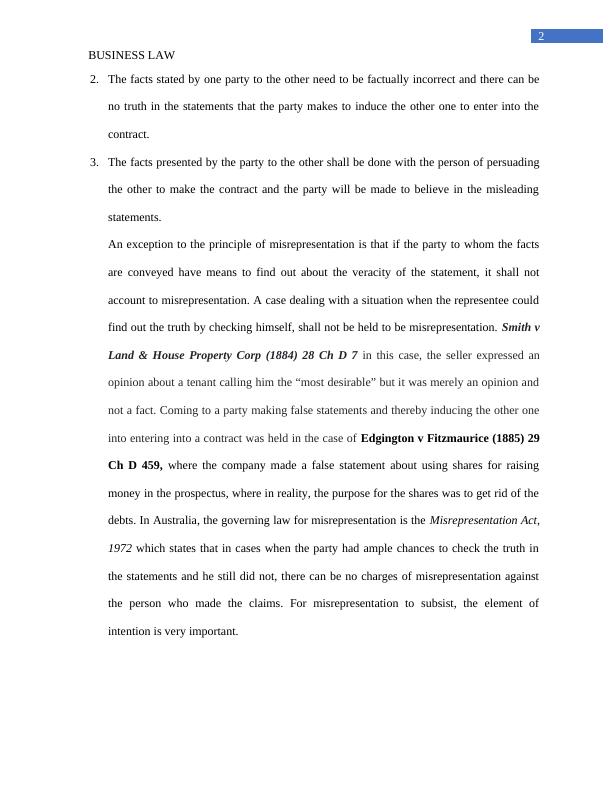Business Law: Misrepresentation and Negligence
Demonstrate knowledge of Australian Business Law, analyze legal issues, interpret legislation and cases, understand compliance and apply law to business.
9 Pages2316 Words259 Views
Added on 2023-06-11
About This Document
This article discusses misrepresentation and negligence in business law with two solved case scenarios. It explains the rules, tests, and exceptions related to misrepresentation and negligence. The first case scenario deals with misrepresentation of facts by Jessica to Angela, and the second case scenario deals with negligence by Acme Cola Manufacturing Company towards Sandra Smith. The article also cites relevant case laws and statutes.
Business Law: Misrepresentation and Negligence
Demonstrate knowledge of Australian Business Law, analyze legal issues, interpret legislation and cases, understand compliance and apply law to business.
Added on 2023-06-11
ShareRelated Documents
End of preview
Want to access all the pages? Upload your documents or become a member.
Business Law: Misrepresentation and Negligence Cases
|9
|2325
|477
Business Law Legal Issue - Assignment
|9
|2356
|138
Business Law Assignment - Misrepresentation and Negligence
|8
|2361
|127
Business Law - Assignment Sample
|12
|2788
|80
Questions on Contract Law 2022
|6
|1288
|11
Assignment Solution on Business Law (pdf)
|9
|2342
|28



